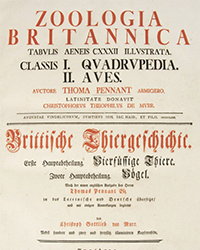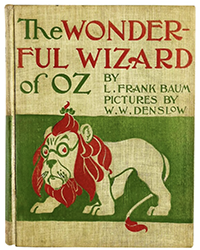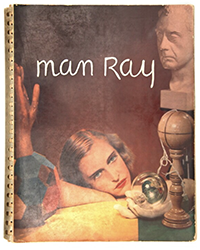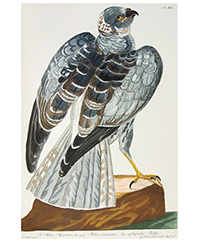A NATURAL CHAOS
In Octobre 1688, the Duke of Albermale died in Jamaica, probably from drinking too much of this wine his friends, and his physician, had warned him about as being much stronger than the one he would share with Henry Morgan in Europe. The Duke turned a deaf ear, and died. His widow decided to head back home and Sloane went with her, leaving Jamaica behind - probably with regrets.
As I was driving alongside the Rio Cobre towards the North coast of the island one day, I took a look at the luxurious vegetation that grows on the steep hills overhanging the river. This presence was so intense, I was suddenly overwhelmed with the burning desire to know this multitude, trees, plants, birds and insects ! It never lasted too long and I guess I will never come any closer in my life to what Sloane must have felt in front of the very same landscape, more than 300 years ago : the desperate wish to grab Life in its fullness, to put it into books, to classify, repertoriate, analyze… A botanical fury.
Unfortunately, the travel to England was quite fatal to Sloane's live collection : the crocodile fell sick and died, the Iguana went overboard and drowned in the ocean, while the gentle and giant snake was shot to death by a frightened sailor after it escaped from its jar. Back to London, the physician remained four years in the service of the Duchess before returning to private medicine « and set[ting] up what was to become an extremely lucrative practice in fashionable Bloomsbury, with clients including some of the richest and most prestigious figures of the day » (NHM). But he never gave up his intellectual and botanical occupations. In 1696, he published Catalogus Plantarum, a simple 232-page listing of the plants he had brought from Jamaica ; a first step towards the clarifying of the nomenclature, then subject to many confusions as the binomial system of Linnaeus was yet to be introduced. Carl Linneaus, as a matter of fact, came to visit Sloane’s « cabinet of curiosités » when still a young botanist, in 1736. In front of the 265 in-folio bound volumes of specimen (eight of them being dedicated to Jamaica) of Sloane’s library, Linnaeus felt dizzy, and had the feeling to face a « chaos » of knowledge. But what a rich one ! 12,500 pieces of vegetables, 6,000 shells, 9,000 insects, 1,500 fishes, 1,200 birds, the skeleton of a young elephant, an 18 feet long skeleton of a whale skull, as well as antiquities such as medals and coins (32,000), and an Eldorado for book lovers : « 50,000 bound volumes of published works (…) as well as an enormous collection of manuscripts and drawings on all manner of subjects, (…) undoubtedly one of the most comprehensive libraries of the time. » (editor) In his will, Sloane estimated he had invested 1,000,000 pounds in his collections.
THE WILL OF A BOTANIST
Sloane died a very wealthy man - milk chocolate, indeed, and his marrying the heiress of a West Indian planter. He also died an old man, at age 93. He remained the Secretary of the Royal Society for 20 years, up to 1723, but once his two volumes about Jamaica came out, he became a legend in his own time, and was appointed President of this prestigious Society, succeeding Sir Isaac (Newton). In 1741, he retired to Chelsea, aged 81. Meanwhile, he had also been very active in putting together The Philosophical Transactions, a scientific publication. In 1750, he published some testimonies of the dreadful earthquake that destroyed a large part of Port Royal in 1692, collected in Jamaica. They remain the best sources regarding this crucial event to date.
Proud of his collections - people who collect things tend, after a while, to consider that they are what they have - Hans Sloane could never find any existing institution worthy of his jewels and decided to leave them to the Nation under a few conditions. First, he wanted his two daughters to get 20,000 pounds each, as compensation. Then he wanted his collections to be accessible to the public. In June 1753, a few months after his death, the Parliament passed an Act to establish the British Museum to shelter his treasures. « The Government chose to raise the necessary funds by a national lottery, wrote the NHM, not an unusual practice in the 18th century. » Thus was born one of the most prestigious English institutions.
I closed the book in front of me, vaguely tired, all the figures still dancing in front of my eyes. For the first time in years, I suddenly felt like drinking a cup of milk chocolate. Guess I was not in the worst place to do so… « à la santé » of Mr. Sloane.
Thibault Ehrengardt / dreadzine(a)free.fr
Thibault Ehrengardt writes from France.


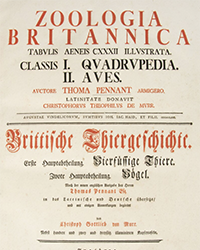
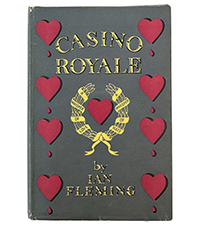
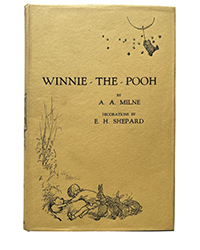
![<b>Sotheby’s:</b> Ernest Hemingway. <i>Three Stories And Ten Poems,</i> [Paris], (1923). First edition of Hemingway’s first published book. $75,000. Sotheby’s: Ernest Hemingway. Three Stories And Ten Poems, [Paris], (1923). First edition of Hemingway’s first published book. $75,000.](https://ae-files.s3.amazonaws.com/AdvertisementPhotos/acf970a0-a15d-4c79-aa24-5e8e414cb465.png)
